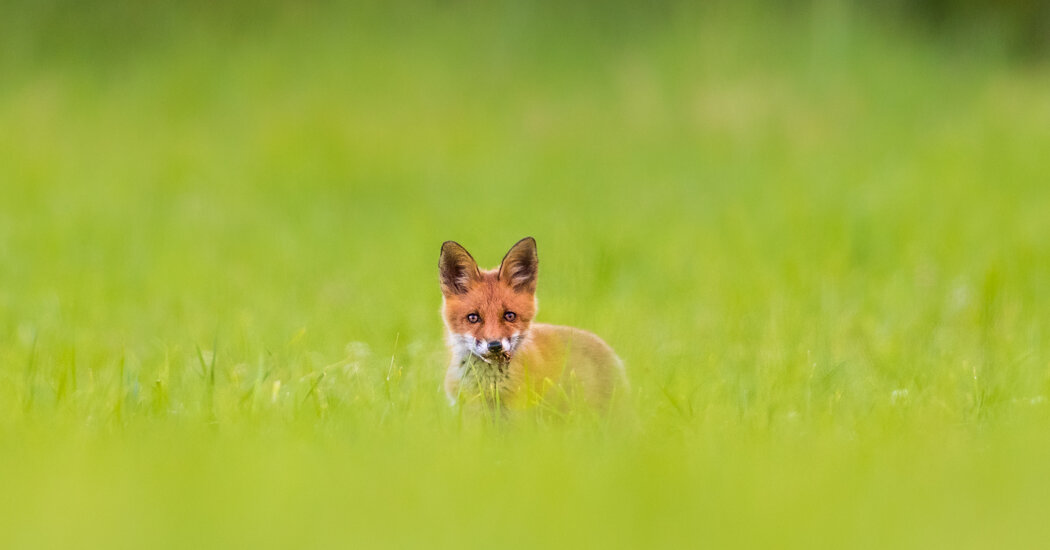
For as long as I can remember, the forests, lakes and mountains of my native Sweden have been my refuge. Half of the photos from my childhood depict me with an armful of wildflowers or a bucket brimming with — not to mention my face covered with the juices of — blueberries.
After moving abroad with my family at the age of 10 and adopting an ever more nomadic lifestyle as an adult — in the last decade I’ve worked primarily in Africa and Asia, usually without a permanent base — I have developed the happy knack of feeling at ease wherever I find myself, almost regardless of the circumstances.
Still, all energy reserves eventually run out. When they do, this is where I turn.
The moment my bags hit the floor, my hiking boots come on. I’ll meander aimlessly for hours, with a basket for mushrooms or berries if the season is right. I rarely bring a camera, and my wife knows not to worry, regardless of how long I stay out.
Lately — especially during the last year, for reasons no longer necessary to explain — I have begun to explore the natural world I grew up in more earnestly, partly to understand why it comforts me so much and partly because I suspected there was far more to be seen and experienced than I had gotten around to in the past.
Much of what I was to discover came about simply by my being more present, more curious. Living at the edge of a forest, I would sometimes see a fox cross the road or a deer grazing on a meadow. Now, I started paying more attention to where I had seen them, often spending hours sitting motionless in wait.
I learned that there was a fox den less than half a mile from our front door, and that a beaver would swim past my favorite cliff at the nearby lake every evening.
Soon realizing that this would only get me so far, however, I reached out to those already in touch with the Swedish wilderness. A friend of many years, Marcus Eldh, a nature guide and the founder of a tour company called WildSweden, took me along for what remains perhaps the most magical moment of my life: sitting at the edge of a lake, surrounded by a forest and the semidarkness of Swedish summer, listening to the howling of wolves just a few hundred meters away. They knew we were there, of course, but chose to remain nearby, making this auditory encounter one entirely on their terms.
But there were other worlds to discover, too.
Professional forest biologists, as well as enthusiastic amateurs, showed me scenes best viewed through a magnifying glass: tiny lichens, mosses and fungi that I still overlook if I don’t know exactly where to turn my gaze.
Sebastian Kirppu, one of Sweden’s top surveyors of forest biodiversity, taught me about the life cycles of trees and forest ecosystems. Making friends among the Sámi, an Indigenous people who live mainly in the northern reaches of Sweden, Norway, Finland and Russia, brought me into contact with an understanding of nature that includes ancestry, interconnectedness and a fiercely strong sense of belonging.
As I explained in my photo essay about Swedish winter, I soon understood that things were far from ideal in what I had previously believed to be a largely untouched wilderness. Despite the extensive and expensive public relations campaigns run by Sweden’s forestry industry, it became very apparent that we are in real danger of losing our last old-growth forests through a process of clear-cutting and monoculture plantations. A curtain was pulled aside, as it were, and my feelings about the nature-loving country of my birth are now far more muddled.
Does it seem absurd if I claim to be as grateful for this insight as I am to have been introduced to the fascinating beauty of microscopic fungi? Well, I am. Ignorance might be bliss up to a point, but it rarely resolves existential threats.
There is a Swedish word — “hemmablind,” or home-blind — that I think is particularly relevant today, given our reduced ability to travel. We often overlook that which is close to home. We travel abroad to experience the exotic, just as we donate money to support faraway causes.
But venturing beyond our borders needn’t come at the expense of appreciating our immediate surroundings. Wherever home is, it undoubtedly offers much to appreciate and experience — as well as plenty to fight for.





